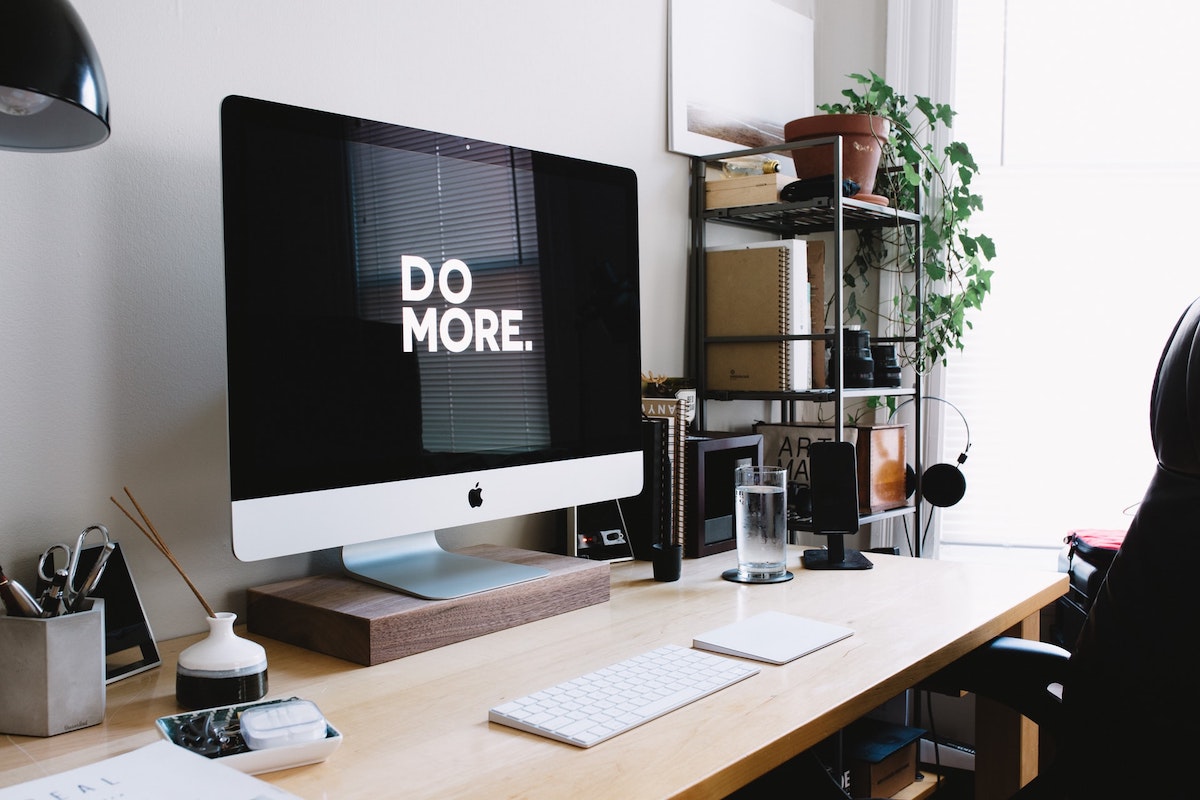We throw around the word “productivity” a lot. Being more productive seems to be a New Year’s resolution for at least half the population!
Did you know that your environment, work conditions, and even your working culture can all impact productivity negatively or positively? There are so many factors that play into what makes you productive or unproductive in a day, but when you average it out you’ll find a few surprising things that play a consistent part.
Surprising Things That Impact Productivity
1. Air Pollution

The quality of air people are breathing while working has been shown to impact productivity. People working in places with better air quality tend to be more productive than people working where air pollution is higher. This is especially true in areas where air pollution is a huge problem. By reducing pollution and improving air quality, you can improve your health and wellbeing at work, resulting in higher productivity.
If you work in a place with poor air quality, that can negatively impact you. If your air quality is already fine, you probably won’t notice a difference.
The interesting thing about air quality is that some people and employers may accidentally make the situation worse by trying to improve quality with the wrong devices. Using scent diffusers, air fresheners, scented candles/incense, air purifiers with ozone generators, or other similar devices can exacerbate the problem rather than fixing it. These devices actually worsen air quality by adding other impurities into it. Though it may smell more pleasant, it’s no better for you.
For a better working experience, basic air purification using air filters makes a significant impact. These simple systems remove pollutants from the air, improving air quality and giving you or your employees a better working environment that could increase their productivity.
2. Visible Career Advancement
Being able to see the path forward in your current occupation causes people to be more productive. Whether that means business owners encouraging internal promotion or self-employed contractors writing up 5-year career paths, the effect is the same.
When you can look and see where you’re likely to end up if you continue working hard, it’s easier to remain productive and work towards that future. Providing yourself or your employees a visible advancement path does wonders for productivity.
3. Company Ownership
When you have some ownership in the company you’re working with, or if you give your employees the chance to own part of your company, productivity improves. There’s good research that shows the connection, although the details are still up in the air in some ways. How much ownership is a good idea, what does a useful ownership program look like, and how does it all work?
The only thing that’s fairly well established is that people tend to be more productive when they’re working on something that’s going to directly benefit them in the long-run as well as the short-term. When people have ownership in a business, they take more pride in what they do and they care more about keeping the business healthy, causing an increase in overall productivity.
If you’ve ever gone from working 9-5 to working for yourself, you’ve likely seen this impact firsthand. You can often be more productive when you’re working for yourself, because you know you’re building something of your own rather than investing your time and energy into building someone else’s vision.
4. Innovation Mindset
Innovation can improve productivity, but even the way you or your company approaches innovation can have an impact on people’s productivity. If innovating and finding better ways to do the work is encouraged, productivity tends to be higher as people feel empowered to work in whatever way suits them best. When innovation is discouraged or forgotten, productivity often also lags behind.

Innovating can mean something as simple as coming up with a new way of cutting your own hair at home, or it could be developing a coding shortcut that allows you to reduce the amount of time spent on uploading to your website.
Whether you’re actively encouraging or promoting innovation, just being visibly open to it can make enough of a difference.
5. Information Asymmetry
Information asymmetry is just a fancy way of saying one person in a business arrangement has far more information than the other. Usually, the person selling the products or providing the service has more information than the person buying it, but it can go either way. There can be benefits or challenges associated with information asymmetry.
This is a good thing in many industries. When employees are more knowledgeable and specialized in their fields, they can be more productive in solving customer problems and meeting needs. You wouldn’t want a cosmetologist who knew little more than all their customers, unless their customers all happened to be professionals themselves. It’s a good thing when the person doing the work knows their field well and has a more knowledge or experience to help them do a great job.
The problem comes when that uneven information gets in way of good decision making. If the person with more knowledge or access to information isn’t open to sharing, they might cause others around them to make poor decisions based on incomplete facts. As an extreme example, a doctor might recommend the wrong medication if they aren’t aware that their patient is already taking a conflicting medication.
Good decisions and the right amount of information help you do your job more efficiently. If you don’t have the information you need to get things done, you won’t be able to be productive. Having the right balance of knowledge means higher productivity in the long run.
6. Gamification
There’s interesting research and lots of conflicting expert opinions about what gamification of work does to productivity. However, a few facts stand out about gamifications and productivity.
Jobs can be unintentionally gamified when every aspect of the job is quantified, measured, and compared. Depending on the complexity of your job, unintentional gamification can either be good or bad for productivity.
Simple jobs that require basic task completion are easy to quantify in a useful way. For instance, if you’re doing tasks that require set times to complete and clearly defined motor actions, it’s far easier to quantify the outcomes and connect that directly to the numbers associated with the work you did. If you’re doing simple tasks, gamification can help improve your productivity by showing you your progress as you go and helping you seeing exactly what your work is accomplishing.
However, complex jobs, especially creative work, cannot be easily quantified. How can you measure the impact of a brainstorming session? What metric can be used to demonstrate your abilities as a hairdresser? Gamification can be disastrous for complex work or creative work. By accidentally judging the quality of your work on a metric that doesn’t adequately measure the impact of what you’re doing, you’re demotivating yourself (or those that work for/with you).
Gamification is a powerful tool to help you achieve your goals and improve your productivity, but only when it’s used in the right ways. For example, you should write down your goals and how you’re going to measure the success of those goals. But, don’t focus too much on the numbers if they don’t directly apply to your work or goals, or else you risk ruining your productivity instead!
7. Intellectual Property Rights
This may not apply to everyone, but it’s worth mentioning anyway in case there are any business owners reading! When employees own some part of their creations, they’re more likely to be motivated to continue creating. It goes hand in hand with what we said above about company ownership.
Ownership encourages people to take pride in their work and encourages them to continue working to create and innovate. If someone is creating things that will be owned exclusively by whoever they work for, it’s less motivational and may reduce overall productivity.
This is easy to see in industries where contract workers are part of the regular routine. Graphic designers, writers, programmer, web designer and other service providers get hit by this pretty hard. They often work on a “work for hire” basis that means they turn over the rights to everything they’re creating after payment is completed. Having some ownership of the end product, whether it’s being credited as a creator or having some claim to royalties, can improve productivity in creative fields.
8. Balance of Work
Work-life balance is hard enough as it is, but what about your work balance itself? What are you doing during working hours, and how is that impacting your actual productivity?

The amount of work you can handle is based on your personality, motivation, skills, and other factors. It’s unique to you and can’t be assumed to be the same as what someone else could do in your position. Understanding what you can handle and using that to maintain a consistent workflow will help with your productivity in 2 ways:
- Avoid Work Stress
- Prevent Apathy
Stress is common in work. You can’t avoid all stress and that’s okay. What you want to avoid is chronic stress where you always feel like you have too much to do that you can’t handle it. Chronic stress always leads to loss of productivity and eventually burnout if it goes on too long.
Apathy is the opposite end of the spectrum. This happens when you’re so disinterested and disengaged from your work that you may not even be able to consistently do the short task list you create for yourself. When there’s little to do, you may not be motivated to do anything at all. It all comes back to Parkinson’s Law, a theory that the work you have will expand to fill the time you set aside to get it done. If you have 2 days to complete a simple task, it will take 2 days.
Finding the sweet spot between overworking and underworking will help you improve productivity. When you can regularly commit yourself to a healthy amount of work that keeps you busy and engaged without burning you out, you’ll be able to work at your best more often. Short periods of intense work or slow times are okay, as long as it all balances out in the mix.
9. Soft Skills
Studies have shown that targeted soft skills training can improve your productivity. Whether you think you’re good at these things or not, a bit of polish can help you get more done at work. The reason this is suspected to be useful is that improving soft skills helps workers to be more efficient overall, allowing them to get more done in the normal working hours.
Soft skills include things like:
- Communicating
- Adapting to Change
- Networking
- Teamwork
- Decision Making (Yes, this is a skill you can learn and improve at!)
- Time Management
- Problem Solving
- Critical Thinking
- Conflict Resolution
No matter how good you are at the “meaty” part of your job, soft skills make a huge difference. For example, you might be an incredible graphic designer, but when you’re forced to work from home full-time you may not be able to cope with all the sudden changes.
Doing your work is only part of your job. Navigating the workplace, working with others, adapting to industry changes, and communicating with everyone clearly helps you accomplish more each workday and makes you easier to work with overall.
The good news about soft skills is that you can learn how to get better at them. Even things like change management or teamwork can be learned. By taking the right training courses, you can improve your productivity by getting better at some of the soft skills you use in the course of your workday.
10. Workplace Design
You’ve probably heard snippets here and there about how natural light or decluttering improve your productivity. These are both accurate, but they’re part of a larger concept. The overall design of your workspace makes an enormous impact on productivity. This includes a wide range of factors, such as:
- Temperature
- Clutter
- Ease of Use, Functionality
- Lighting
- Aesthetics, Beauty
- Ergonomics, Comfort
- Noise
- Air Quality (see #1 on this list for more about this)

Workspace preferences vary from person to person, but design makes a difference for everyone. It’s why you can get more done in a few hours at a coffee shop than a whole workday in your cluttered, dark home office shoved into the corner of a storage room.
There’s a substantial amount of evidence showing the benefits of good office design and environmental management in improving productivity. From keeping the thermostat at a comfortable temperature to having a live plant on your desk, you can do so much to make your workspace more conducive to working. Decluttering is generally considered to best thing you can do for an immediate benefit.
Conclusion
What productivity looks like for you will be unique to your working situation. But, if you’re looking for ways to boost your productivity or to sort out issues with being unproductive, make sure you look at some of the unexpected factors that could be impacting you personally.
About the author:
Georgi Todorov is a digital marketing specialist at Green Park Content and All Things Hair. Georgi has his own blog about digital marketing called DigitalNovas. Hit him up on Twitter anytime.
What would you like to know and what would be the best way to share this information to you? What is the best tips & tricks, what workaround do you use? We'd really appreciate your insight on these ones to make our integrations better, more productive and much more efficient. Comments, tweets are always welcome.